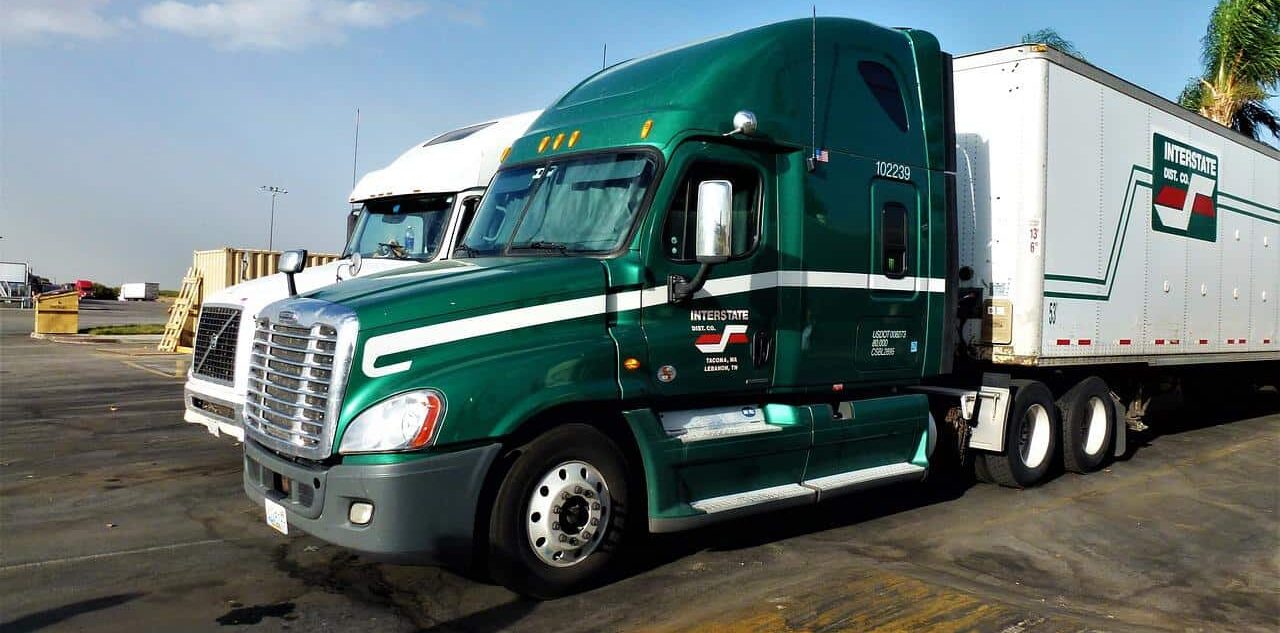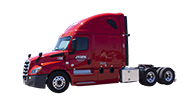A truck helps you serve customers and haul freight across land-based routes. Truck fleets acquire vehicles based on their balance sheets and customer demands. Whether you wish to add vehicles to your fleet or buy your first truck, you’ll have to make a decision: lease vs loan. Both arrangements can get you the truck you want, but these are two different processes with important discrepancies worth noting.
We’ll compare loans and leases while also discussing scenarios in which one is better than the other. Let’s get started!
What Is a Lease?
Leases don’t give you full ownership of the truck. You will make monthly lease payments throughout the contract. Once you stop paying, you’ll lose the truck. Leases are easier to get than loans and they can help people with their short-term needs.
What Is a Loan?
A loan helps you finance assets that you don’t have enough money to purchase upfront right away. You’ll have to obtain approval from a lender and make monthly payments for a few years, but after fully paying off the loan, the truck will be yours!
Lease vs Loan
Trucking companies and aspiring drivers can use a loan or lease to get their next vehicle. Now that we have some background information on each option, we’ll further explore how they stack up against each other.
Ownership of Vehicle
A loan will give you a path to vehicle ownership. Each monthly loan payment builds up equity in your vehicle. Once you fully pay off the loan, you won’t have to worry about a financial institution or company taking your truck.
When you lease a truck, you never own a vehicle or build equity. The lessor owns the truck at all times and continues collecting payments. If you stop paying, the leasing company will take the truck.
Fees, Monthly Payments, and Insurance Rates
Loans require more upfront cash but come with promising long-term prospects. You will have to make a higher down payment for a loan, while you can sign a lease without putting any money down. Loans also come with interest rates.
Fixed interest rates lead to consistent monthly payments for the loan’s duration. A variable interest rate adjusts based on how interest rates move, adding some unpredictability to monthly payments.
Fixed-rate loans offer the most consistency, something you can’t get with a lease. The leasing company can increase its rates each year, taking more money out of your pocket.
You will have to continue paying the lease well after you would have paid off the loan. Insurance rates are also lower on commercial truck loans than commercial truck leases, providing you with extra cash flow.
Taxes
Loans and leases both provide tax protections. The lease’s monthly payments are tax-deductible, giving you a constant write-off. If you buy a truck through a loan, you can use depreciation as a write-off.
Truck drivers and fleets have limitations on how much they can depreciate from a vehicle. However, the tax write-off from a lease is always in effect for the duration of the lease.
Time Period of Use
Some truck drivers and fleet owners want to use new trucks for several years. A long-term window makes loans the better choice. You’ll eventually not owe any loan payments, while lease payments will never go away.
A lease contract makes more sense for short-term obligations. You may experience heightened demand during the holiday season that wanes for the rest of the year.
Leasing trucks provides more flexibility, and you can get out of the contract during slower seasons. Leasing a truck also requires less effort than getting approved for a loan. You’ll have your vehicle sooner and can back out after the short-term needs fade.
Mileage
When you use a loan to buy a truck, it’s yours. You can drive as many miles as you want in your vehicle.
Leases give you some mileage flexibility as well, but you’ll owe more on the lease if you exceed their mileage limit. Leasing companies will also require regular maintenance on their vehicles.
Who Is Best Suited for a Lease?
Some truck drivers and fleets would benefit more from a lease than a loan. However, to help you figure out what’s best for you, we have outlined the pros and cons below.
Pros:
- A lower upfront cost
- Quicker access to the vehicle
- More flexibility since you can get out at any time
Cons:
- You do not build equity in the vehicle and continue paying each month.
- When you stop paying the lease, you’ll lose the truck.
- You’ll face mileage limits.
Who Is Best Suited for a Loan?
Loans are a great path for many truck drivers and fleets who want to get a new vehicle. We have highlighted the advantages and disadvantages of a loan below.
Pros:
- Eventually own the vehicle outright
- Monthly loan payments ultimately disappear over time
- No mileage limits or mandatory maintenance based on leasing company
- More cash flow in the long run
Cons:
- Down payment and application process raise the barrier to entry
- Lenders will check your credit score
- Harder to back out if you only need the truck for short-term obligations
Strategically Add Trucks to Your Fleet with the Right Plan
Truck drivers and fleet owners turn to loans and leases to acquire trucks. Leases work best for short-term obligations, while loans are ideal for long-term applications.
Adding trucks to your fleet with the right approach will impact your long-term cash flow and opportunities. You should consider how you will use the truck and your future plans before deciding on a loan and lease.
FAQ
Financing a truck is cheaper in the long-term, but leasing a truck requires less capital in the beginning.
Leasing a truck is optimal for short-term needs and need some flexibility.
You can tow with a leased truck.


